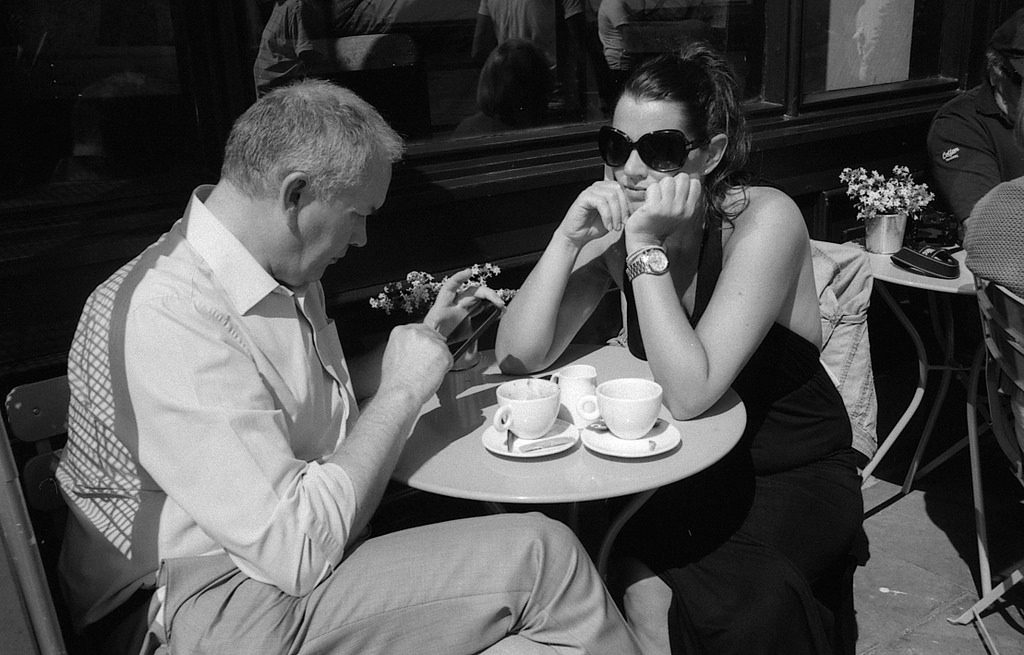Smartphones affect relationships, period. Their convenience and technology may bring a couple together initially, but they can ruin the relationship later, and PPhubbing is a prime example. Phubbing is phone snubbing, ignoring the person in front of you to use your smartphone. “Pphubbing” is phubbing your partner, and it could potentially destroy your relationship.
Researchers at the Hankamer School of Business of Baylor University in the US conducted two separate surveys on 453 adults, and found that phubbing could strain couples and lead to depression. Titled “How ‘phubbing’ becomes the norm,” the study was recently published in the journal Computers in Human Behaviour. The work’s author, James Roberts, Ph.D., had this to say about phubbing: “When someone perceived that their partner phubbed them, this created conflict and led to lower levels of reported relationship satisfaction.”
Broken down by statistics, the study reports that 46.3% of participants were phubbed by their partner, and 22.6% said this caused relationship conflict. 36.6% of the respondents said they were depressed, and only 32% were very satisfied with their relationship. A direct line can be drawn between lower levels of relationship satisfaction, lower life satisfaction rates, and higher levels of depression.
The first study, of 308 adults, helped the researchers define a “Partner Phubbing Scale” of smartphone behaviours, through statements like “My partner places his or her cell phone where they can see it when we are together” and “My partner glances at his/her cell phone when talking to me.” The second survey, with 145 respondents, used this scale to measure relationship and life contentment, depression, anxiety, etc.
Pphubbing decreases relationship satisfaction
The study’s co-author, Meredith David, Ph.D., said the findings imply the more you interrupt couple time with your partner to use your phone, the less likely your partner will be satisfied in the relationship. The result? Greater depression, lesser well-being. This was a short-term study, so the researchers can’t say how long until the relationship implodes from neglect.
How to reduce pphubbing in your relationship
So how do you keep from pphubbing and getting pphubbed? (And it is reciprocal. Many times the automatic response to getting phubbed is picking up your own phone and checking out). First off, be aware of how much time you spend on your phone communicating with others. If you have an actual smartphone addiction, that’s something to acknowledge and seek help for.
If it’s just that you’re using your phone too much, especially during blocked out “couple time”, there could be something else going on, like a conversation you’ve been avoiding.
And if it’s oblivion, flipping through your emails out of habit instead of listening to your partner (and maybe some mild tech addiction), learn to put the phone down to take a digital detox. Turn it off when you’re having dinner or watching a movie together. There are free apps that track how often you use and touch your phone, such as Checky – Phone Habit Tracker or the Break Free app. Install one and see how much time you’re actually putting into the phone, versus spending with your partner.
If you manage to put the phone down and be fully present for your partner, and something is still not connecting—you might consider couples therapy, to find out what is beneath this disconnect.
Do you need relationship help?
If you need help with your relationship, contact Clinton Power + Associates on (02) 8968 9323 to discuss your situation and find out how we can help.
photo credit: Stemack Street Communication? via photopin (license)
Since 2003, Clinton Power has helped thousands of couples and individuals as a counsellor and psychotherapist in private practice in Sydney and online in Australia. Clinton regularly comments in the media on issues of relationships and has appeared on Channel 7, The Sydney Morning Herald, and ABC Radio. Clinton’s eBook, 31 Days to Build a Better Relationship is available through his website or Amazon. Click here to take Clinton’s relationship checkup quiz to find out how well you know your partner.

